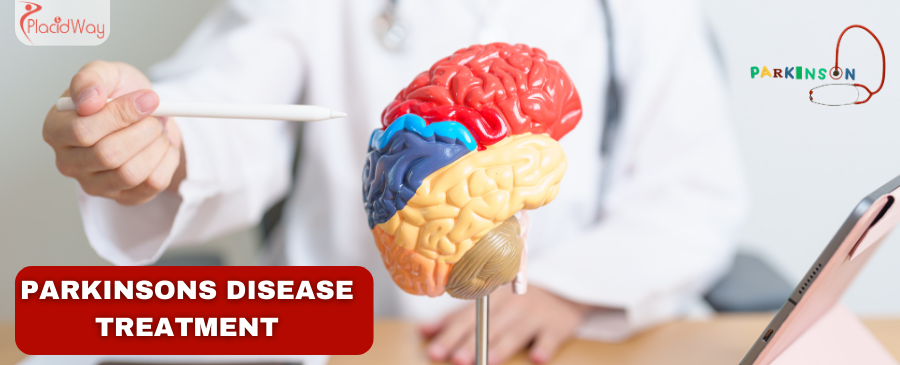
Table of Content
Key Insights at a Glance
- The procedure options for Parkinson's Disease include medication, surgery, and therapy.
- Average cost of deep brain stimulation, a common treatment, is significantly lower abroad than in the U.S.
- Risks can include complications from surgery and side effects from medication.
- Internationally accredited clinics offer high standards of care and advanced treatment technologies.
- Patients may need ongoing treatment or adjustments based on the progression of the disease.
What is Parkinson's Disease?
Parkinson's Disease (PD) is a progressive neurological disorder that affects movement. It develops gradually, sometimes starting with a barely noticeable tremor in just one hand. But while a tremor may be the most well-known sign of Parkinson's disease, the disorder also commonly causes stiffness or slowing of movement. In the early stages of Parkinson's disease, your face may show little or no expression, or your arms may not swing when you walk. Your speech may become soft or slurred. Parkinson's disease symptoms worsen as your condition progresses over time.
Symptoms of Parkinson's Disease Abroad?
- Tremors, mainly at rest and described as pill rolling tremor in hands
- Bradykinesia (slowness of movement)
- Limb rigidity
- Gait and balance problems
- Loss of automatic movements (such as blinking)
- Speech changes
- Writing changes
Latest Types of Parkinson's Disease Treatments available in the World
| Treatment | Description | Availability |
|---|---|---|
| Medication | Levodopa, the most commonly prescribed medication | Widely Available |
| Deep Brain Stimulation (DBS) | Surgical procedure to implant a pacemaker-like device that controls symptoms | Select Countries |
| Physical Therapy | Helps manage symptoms and improve quality of life | Globally Available |
For different packages for Parkinson's Disease treatments, click here.
Safety Concerns for Parkinson's Disease Treatment Overseas?
- Quality and accreditation of the treatment facility
- Expertise and experience of the healthcare professionals
- Risks associated with surgery, such as infections or complications
- Communication barriers and follow-up care
Risks Associated with Parkinson's Disease Treatments Globally
- Complications from deep brain stimulation like bleeding or infection
- Side effects from medications, which can include nausea, dizziness, and others
- Physical therapy risks are minimal but can include muscle soreness and fatigue
Procedure for Treating Parkinson's Disease
Here’s an overview of the typical procedure for treating Parkinson's Disease, including both medication-based and surgical approaches to manage symptoms and improve quality of life:
1. Initial Diagnosis and Treatment Planning
- Neurological Assessment: A neurologist conducts a thorough examination, reviews symptoms, and may order tests (such as MRI or DaTscan) to confirm the diagnosis.
- Treatment Planning: Based on the severity and stage of Parkinson’s, the doctor creates a personalized treatment plan, considering both pharmacological and non-pharmacological approaches.
2. Medication-Based Treatments
- Levodopa and Carbidopa: This combination remains the primary treatment to replenish dopamine levels, helping manage tremors and stiffness.
- Dopamine Agonists: Medications like pramipexole or ropinirole stimulate dopamine receptors and can be used alone or with Levodopa.
- MAO-B Inhibitors: These drugs slow down the breakdown of dopamine, providing longer-lasting effects.
- COMT Inhibitors: Often used with Levodopa to prolong its effects.
- Other Medications: Anticholinergics, amantadine, and newer medications may be added to manage specific symptoms like tremors, rigidity, or dyskinesia.
3. Advanced and Surgical Treatments
- Deep Brain Stimulation (DBS): A surgical option for patients who no longer respond well to medications. Electrodes are implanted in specific brain areas (usually the subthalamic nucleus or globus pallidus) to regulate abnormal brain activity.
- Focused Ultrasound Surgery: A non-invasive approach that uses focused ultrasound waves to target areas of the brain causing tremors.
- Stem Cell Therapy (experimental): Research is ongoing to assess the efficacy of stem cell transplants to restore dopamine-producing cells.
4. Non-Medication Therapies
- Physical Therapy: Exercise and movement therapy improve strength, flexibility, and mobility.
- Occupational Therapy: Helps patients adapt daily activities to maintain independence.
- Speech and Swallowing Therapy: Addresses challenges with speech clarity and swallowing.
Cost of Parkinson's Disease Treatments in the World | Compare Prices
| Country | Deep Brain Stimulation | Medication per annum |
|---|---|---|
| Mexico | $35,000 | $1,200 |
| Turkey | $24,000 | $1,000 |
| Thailand | $28,000 | $1,100 |
| Colombia | $30,000 | $1,150 |
| India | $22,000 | $900 |
| Austria | $40,000 | $1,300 |
| USA | $100,000 | $2,500 |
| UK | $85,000 | $2,200 |
To find prices for Parkinson's Disease treatments near you, click here.
FAQs Related to Parkinson's Disease Treatment Overseas
What does the Parkinson's Disease Treatment Cost without insurance?
The cost of Parkinson's Disease treatment without insurance can vary significantly depending on the type of treatment and the country in which it is received. Medication costs can range from $900 to $2,500 per year, while surgical treatments like Deep Brain Stimulation can cost between $22,000 and $100,000.
Is Parkinson's Disease Treatment abroad safe?
Yes, treatment abroad can be safe if you choose accredited hospitals and experienced doctors. Many countries have healthcare systems that meet or exceed international standards.
Can I get treatment immediately?
Availability of treatment can vary. Some treatments like medication are readily available, while others like DBS may require a waiting period or pre-surgical evaluations.
What are the success rates of DBS?
Deep Brain Stimulation has been shown to reduce symptoms in many patients, with success rates often exceeding 70-80% for appropriately selected patients.
Are there language barriers?
In major hospitals in foreign countries catering to international patients, language barriers are minimal as many medical staff speak English. However, it's always advisable to check in advance.
Book Your Parkinson's Disease Treatment Abroad with PlacidWay
Explore a world of possibilities for treating Parkinson's Disease. With PlacidWay, you can access top-notch medical centers around the globe, offering cutting-edge treatments at a fraction of the cost. Don't let geographical boundaries limit your treatment options. Contact us today to find out more about Parkinson's Disease treatments abroad and start your journey towards better health!
Best Neurology Treatment Center | Cheap Neurology Treatment Packages










Share this listing